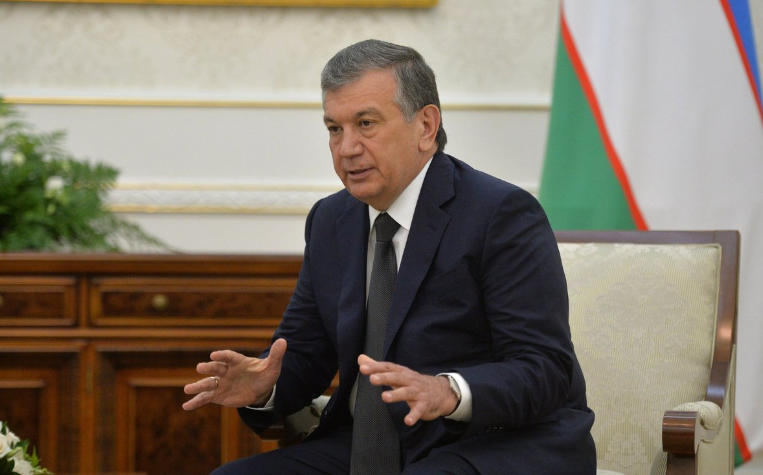Uzbekistan's fake democracy
In recent days, Tashkent too celebrated its parliamentary elections, equally dividing the votes between the 42.7% of President Šavkat Mirziyoyev's liberal-democratic party and those of the other ‘alternative’ parties, but in reality all loyal to the current regime. While freedom of expression and of the press continues to shrink year by year.
Tashkent (AsiaNews) - Uzbekistan has also held its round of parliamentary elections in the Olij Mažilis and various regional administrations in recent days, equally dividing the votes between the 42.7% of President Šavkat Mirziyoyev's Liberal Democratic Party and those of the other ‘alternative’ parties, but in reality all loyal to the regime in power: Millij Tiklaniš's Democrats, the Social Democrats and the Popular Democrats, who all together won roughly the same number of seats as the majority party, 65 to 70, between majority and proportional seats.
Mirziyoyev noted smugly that the elections were held ‘in an atmosphere of strong competition’, whereas for several years now, even before his election in 2016, only pro-government parties have been showing up, while those that might even weakly represent some opposition cannot even get registration to present their candidates.
Uzbekistan is the most populous country in Central Asia with 35 million inhabitants, and even more than its neighbours it tries to present a scenario of illusory democracy to cloak its highly authoritarian regime in liberalism. In these parts, the ‘70-80%’ law with which elections in Russia and Belarus must be concluded does not explicitly apply, and which Georgia in recent days mitigated with the ‘almost 60%’ victory of the Georgian Dream, causing great protests among the population.
The last election competition in 2019 was still in the transition phase from the gloomy dictatorship of Islam Karimov, the first post-Soviet president to remain in power for 20 years. The new Mirziyoyev regime presents itself with modernising and seemingly tolerant openings, while the system remains firmly in the hands of the president, who intends to place Uzbekistan in a strategic role in the new global balance between East and West, and needs domestic and international support.
Freedom of expression and of the press in Uzbekistan actually continues to decline year by year, according to Reporters Without Borders statistics, whereby if in 2019 Tashkent was credited with 46 out of 100 points, today it has fallen as low as 37. Many independent bloggers and publicists who had deluded themselves about Mirziyoyev's ‘thaw’ now find themselves behind prison bars. In contrast, pro-government experts, such as Miršokhid Aslanov of Diplomat magazine, predict ‘a major reform programme in the country's political history’.
According to Aslanov, ‘the population has a great desire for change, especially with regard to the transparency of the economy, the independence of the judiciary, and the defence of the environment’, major topics on which President Mirziyoyev often dwells. The ‘fringe’ parties, including the ecologists, would have the function of stimulating the reforms. Observers from the Organisation for Security and Cooperation in Europe limited themselves to criticising the ‘overly restrictive measures’ for party registration in elections.
One of the few open critics of the president is Khindirnazar Allakulov, who has been trying for years to register his party ‘Truth, Progress and Unity’ without success. A former rector of the University of Tashkent, he is constantly under pressure from the authorities, who also act against his relatives and supporters, who are often arrested and subjected to harassment, including electric shocks. His son Šerzod is currently in prison, but he does not hesitate to describe the past elections as a ‘propaganda show’.
Last year, Mirziyoyev pushed through a new constitution for the country, following a script well-trodden by Putin's Russia to other ex-Soviet countries, thus getting himself re-elected to a new 7-year term instead of the previous 5, closing the circle with parliamentary elections that guarantee the ‘bright future’ of the new Uzbekistan.







.png)












